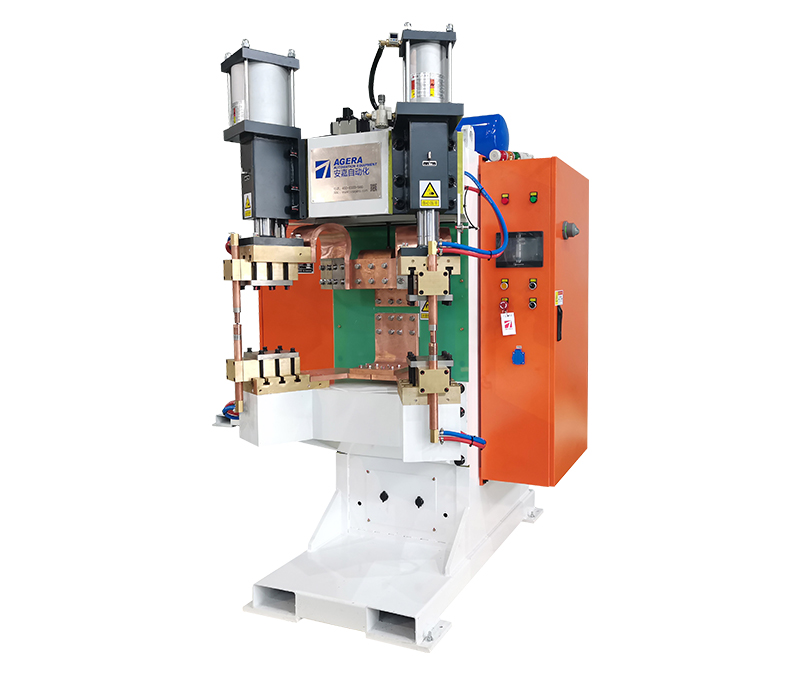Spot Welding is a common method in manufacturing, used to join two or more metal components together by melting their edges and fusing them together. Nut spot welding machines are a specific type of spot welding equipment designed for attaching nuts or other threaded fasteners to metal parts. These machines employ specialized electrodes, and the choice of electrode material is a critical factor in their performance.
The material of the electrodes used in nut spot welding machines can greatly affect the quality and durability of the welds. Typically, electrodes for nut spot welding are made from materials that provide good electrical conductivity, high heat resistance, and durability. Let’s take a closer look at some common electrode materials used in nut spot welding machines:
- Copper Alloys: Copper and its alloys, such as copper-chromium and copper-zirconium, are widely used for electrode materials. Copper offers excellent electrical conductivity and heat resistance, making it suitable for the high temperatures generated during spot welding. Copper electrodes also exhibit good resistance to wear, which is important for the longevity of the equipment.
- Copper Tungsten Alloys: Copper tungsten is a composite material that combines the electrical conductivity of copper with the heat resistance and durability of tungsten. It’s an excellent choice for applications where high current and repetitive welding cycles are involved. Copper tungsten electrodes can withstand prolonged use without significant deterioration.
- Molybdenum: Molybdenum electrodes are known for their high-temperature resistance and ability to maintain their shape under extreme heat. While they may not be as electrically conductive as copper, they are still suitable for certain spot welding applications, especially those involving exotic materials or where extreme heat is generated.
- Class 2 Copper: Class 2 copper electrodes are a cost-effective option for nut spot welding machines. While they don’t possess the same level of heat resistance as copper alloys or copper tungsten, they are still capable of providing good welds in many applications.
Choosing the right electrode material for a nut spot welding machine depends on several factors, including the type of materials being welded, the required quality of the welds, and the expected production volume. Copper alloys and copper tungsten are generally the top choices due to their superior performance characteristics, but the selection may vary according to specific requirements.
In conclusion, the material of the electrodes used in nut spot welding machines is a critical element in achieving high-quality and durable welds. The choice of material depends on factors such as electrical conductivity, heat resistance, and wear resistance. Manufacturers must carefully consider their specific welding needs to select the most suitable electrode material for their nut spot welding machines.
Post time: Oct-19-2023








